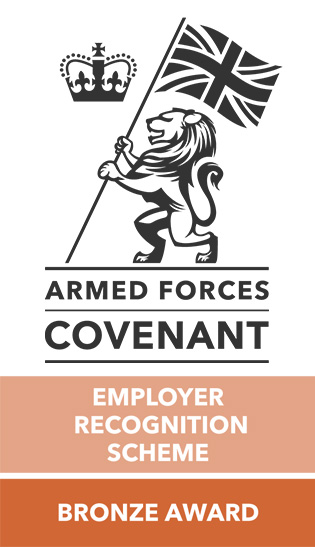Put your skills in the spotlight
… during your civilian job search by shining a light on the many transferable skills – both ‘soft’ and technical – you can demonstrate thanks to your military career.

Although the pandemic may now (thankfully) be well and truly behind us, it’s nevertheless clear that its impact will be long lasting – not least for those who are striving to secure employment, which of course includes many Service leavers. Whether you have come to the end of your military service or have been medically discharged, the many transferable skills you will have developed while in uniform are becoming more and more recognised and sought after by potential employers as invaluable to their business.
A veteran’s transferable skills
Training in the Armed Forces is a unique experience and with it comes a wealth of skills that are not easily matched. While Service life can be tough, there can be no doubt that it provides you with a level of expertise and cutting-edge skills that can last a lifetime and set you apart from civilian competitors for the same role.
Service personnel develop many technical skills in their field of expertise, but they also develop more interpersonal skills too, like teamwork and self-management, as well as characteristics like resilience and determination. These are the sorts of attributes that civilian employers admire, and many are already aware of the huge benefits of employing veterans in their workforce.
HOW MANY OF THESE CAN YOU TICK OFF?
Some of the many skills and attributes veterans possess include:
- teamworking skills
- self-management
- punctuality
- resilience
- determination
- leadership skills
- technical and analytical skills
- organisational skills.
It takes only a brief glance at the values underpinning Britain’s Armed Forces to understand why its people are and have been such a valuable resource:
- loyalty – supporting teammates and the organisation
- courage – doing and saying the right thing
- discipline – particularly self-discipline, which helps to establish and maintain high personal standards and earns the respect of others
- respect for others – treating others as you expect to be treated
- integrity – being honest with yourself and your teammates
- selfless commitment – putting the team first.
Indeed, one positive to come from the pandemic was the admirable work done by the Armed Forces, which thrust into the spotlight the many skills and values those who have served can offer – not only in terms of technical skills but also the ‘soft’ transferable skills – such as being able to communicate effectively in a variety of situations, showing initiative, creativity and integrity, and having a good work attitude – they can bring to civilian employment.
Practical tips for securing employment
First and foremost, it is important to appreciate that training for the Armed Forces provides a wealth of opportunity to obtain skills, qualifications and training while serving – far in excess of most civilian organisations. So, if you are still serving, you should think of these skills as providing a real advantage to any future job applications, and get as many of them under your belt as you can.
There are many trade-specific skills that Service personnel have, which means their technical expertise is highly sought after, particularly in the engineering, logistics, aviation, maritime and security industries. Some ex-Service personnel also choose to utilise their work ethic to retrain, and to eventually move into roles in finance, teaching and law, among other professions.
Training for the Armed Forces provides a wealth of opportunity to obtain skills, qualifications and training while serving
So what practical advice can be offered to Service personnel looking for work? Here are a few pointers …
- List the key skills and achievements you possess, which employers might find useful.
- Have confidence in your abilities and the many skills you have to offer.
- Speak with a careers adviser or approach one of the many military charities that may be able to help with your resettlement.
- Think about what work you might like to do in the short and long term, and what roles your skills might match.
It is also helpful that the MoD has become much more aware in recent years of the challenges faced by those transitioning to civilian life, and of the support that is required to make that transition as smooth as possible. The military recognises that support in these areas is important to ensure a better and healthier quality of life for those leaving the Forces. As a result, there are now far more support networks available for veterans during this transitional period. These include …
- the Career Transition Partnership (CTP), which provides resettlement support to eligible Service leavers and their spouses
- the numerous military charities that offer career and resettlement advice, workshops and careers fairs, such as
- the Royal British Legion – which offers support, advice and guidance on securing alternative employment on leaving the Forces
- finally, Veterans’ Gateway is an excellent first port of call to point you in the direction of the precise kind of support you and/or your family need (take a look at our feature here for some examples of the support on offer).
However uncertain the future might seem, employers are very likely to see veterans and their skills in a very positive light, and even though securing work in the current climate is challenging, veterans undoubtedly have a lot to offer.
It is also vital to be kind to yourself when seeking work. It is easy to harbour self-doubt at such a challenging time, but it is important to have confidence in your skills and achievements, and a clear understanding of what you can bring to the table.
With grateful thanks to Claire Withey, an associate solicitor in the military claims team at London-based solicitors Bolt Burdon Kemp, for her contribution to this article.











